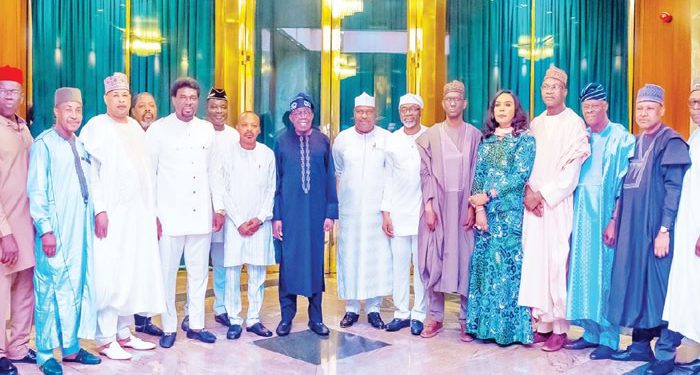In a bid to resolve Nigeria’s minimum wage deadlock, President Bola Tinubu and Organised Labour leaders met Thursday, adjourning discussions until next week for further deliberation. The meeting, held at the State House in Abuja, aimed to bridge the gap between stakeholder proposals amidst economic challenges gripping the nation.
Understanding the Stalemate:
The Tripartite Committee recently proposed figures ranging from N62,000 to N250,000, highlighting the complexity of balancing economic realities with workers’ demands amidst inflationary pressures and rising living costs.
Insights from the Discussion:
Joe Ajaero of the Nigeria Labour Congress (NLC) clarified that the session was more of a discussion than a negotiation, focusing on presenting economic indices affecting Nigerians and advocating for an equitable wage reflective of current economic hardships.
Festus Osifo, representing the Trade Union Congress (TUC), echoed the sentiment, highlighting critical economic issues tabled before President Tinubu and emphasizing the need for tangible measures to mitigate inflation’s impact on citizens’ purchasing power.
Hope for Resolution:
Ministers present expressed optimism despite the initial deadlock. Minister of Information and National Orientation, Mohammed Idris, affirmed the government’s commitment to finding a workable solution that accommodates the concerns of Organised Labour. Discussions are set to resume in a week, with expectations high for a consensus that benefits all Nigerians.
President Tinubu’s Perspective:
President Tinubu, advocating for a pragmatic approach, suggested revisiting the minimum wage every two years instead of the current five-year cycle. He underscored the importance of aligning wage adjustments with economic dynamics to sustainably improve workers’ welfare.
In conclusion, while challenges persist, stakeholders remain hopeful that the upcoming talks will yield a viable resolution. The outcome holds significant implications for Nigeria’s economic landscape, influencing both workers’ livelihoods and national productivity. As the nation awaits further developments, the focus remains on fostering constructive dialogue and equitable solutions to address prevailing economic realities.
3.5



























































